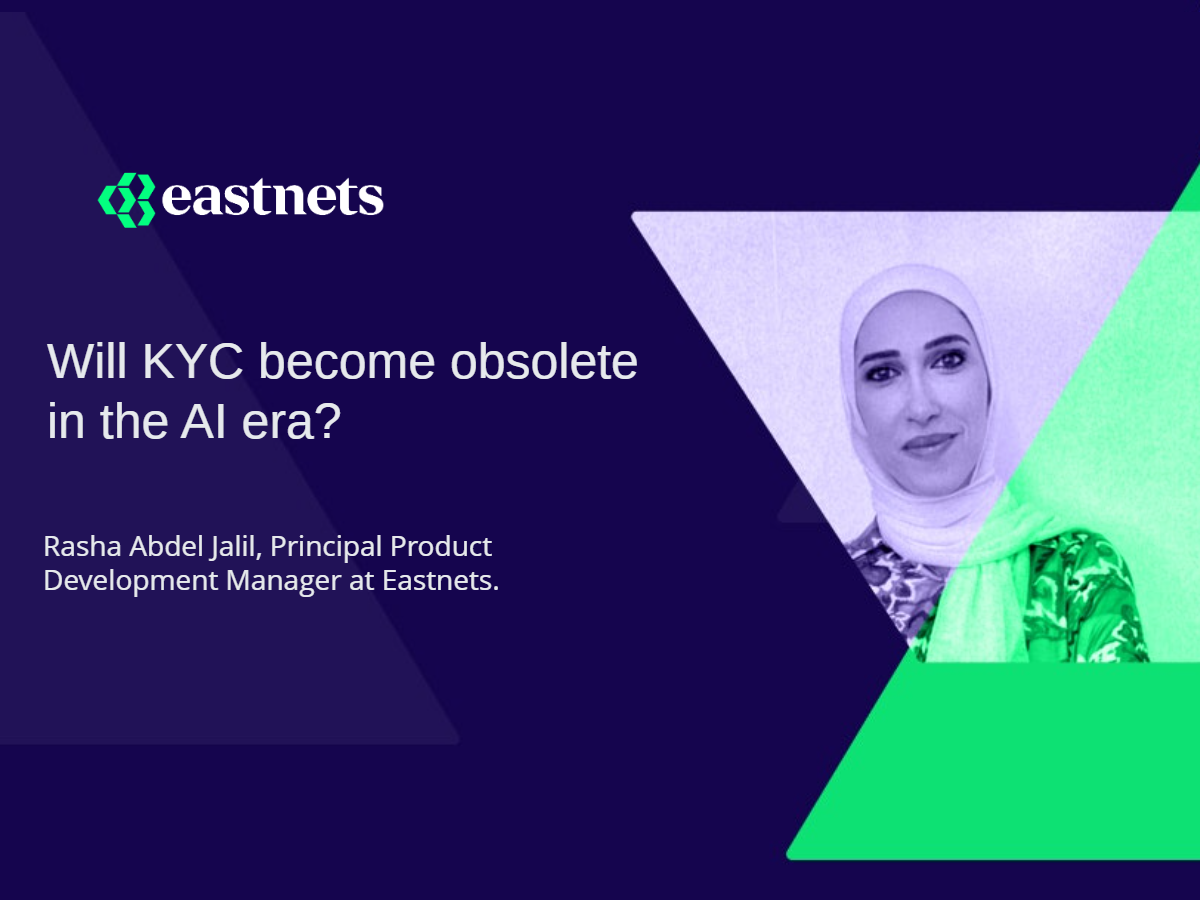In 2022, six people were convicted for Trade-Based Money Laundering (TBML) in Saudi Arabia. The six were jailed for 31 years for crimes involving expats and Saudi citizens colluding using bank accounts in exchange for monthly payments of SR10,000. For this fee, the bank account holder agreed to transfer illegally obtained money out of the KSA, the transfer disguised as a commercial trade. This instance of TBML in KSA is not a one-off.
Countries worldwide are finding TBML a challenge, as the tactics of the financial criminal morph to exploit complex trade transactions to hide illegal money transfers. The size of the problem is massive; research in the European Union alone places TBML cash laundering in the region of 1.8 trillion dollars annually.
TBML is challenging FIs in the GCC region. Here, Eastnets explores the specter of TBML in the KSA and GCC, and looks at how FIs can meet the challenges of this complex and sophisticated financial crime.
Money Laundering and laws in KSA and GCC
Countries in the GCC region are under pressure from authorities recognizing the risk of money laundering. The regional view of TBML is crystallizing with the Financial Crime Country Dashboard from FCN (Financial Crime News) placing Saudi Arabia as a "moderate risk" for financial crime; the FCN report found that TBML is one of the top ways money is laundered and transferred outside the Kingdom. Highlighting the risk profile of the region, in March 2022, the Financial Action Task Force (FATF) placed the UAE on its gray list, citing serious problems in the measures taken by UAE against sanctions evasion, terror financing, and other financial crimes.
Various regulators act across the region to enforce regulations and laws that moderate money laundering, including TBML. In the KSA, for example, several regulatory authorities handle AML regulation enforcement:
- The Ministry of Anti-Money Laundering, founded by the Minister of Trade and Industry
- The Saudi Arabian Monetary Agency
- The Capital Markets Authority (CMA)
- The Saudi Central Bank (SAMA)
- The Saudi Arabia Financial Intelligence Unit (SAFIU)
In an effort to stem the flow of illegal trade transactions, the region is applying regulations, standards, and laws, the following are examples:
The Anti-Money Laundering Permanent Committee (AMLPC) was formed to oversee the implementation of the FATF's 40 recommendations to combat money laundering operations. MENAFATF oversees the application of the FATF regulations across the region.
The Anti-Money Laundering Law in KSA
The Federal Decree-law No. (20) of 2018 (and 2021 update) on anti-money laundering and combating the financing of terrorism and financing of illegal organizations in the UAE.
How is TBML carried out across the GCC?
A report from the UAE Financial Intelligence Unit, "Strategic Analysis Report on Trade-Based Money Laundering (TBML)," identifies six emerging typologies associated with TBML in the region:
- Use of back-to-back letters of credit (LoC): used as a guarantee to trade between three parties (seller, intermediary, buyer).
- Presentation of fictitious documents: falsified documents used to verify trade transactions, e.g., bill of lading.
- Phantom shipments (or fictitious trades): shipments that are paper-only and do not actually occur.
- Over or under-invoicing: mis-representing the price of traded goods.
- Accounts used as a pass-through: as evidenced in the expats and Saudi citizens example in the introduction. In UAE, free zone entities were part of an account pass through via offshore companies.
- Use of shell and front companies: lowering the barriers to trade by the UAE (along with other countries in the GCC) has seen an increase in TBML risk.
These emerging exploits will likely be repeated across GCC countries, including the KSA. So, how can an FI surmount the challenge of sophisticated, multi-faceted trade-based money laundering?
Stop TBML in KSA and GCC using an integrated approach
To stop sophisticated TBML attempts, you must use sophisticated methods. A report from MENA Financial Crime Compliance Group (MENA FCCG) on "Trade-Based Financial Crime - Middle East and North Africa" talks of a combined, multi-layered approach to the prevention of TBML: this approach includes an integrated and holistic approach to data analytics, as well as the use of emerging tech such as distributed ledger technologies and blockchain. On a positive note, the paper points out that the move from paper-based trade documentation to digital versions is helping to improve monitoring and detection, reducing overall costs. The report states that there is a "clear case to enhance current systems with new machine learning and AI techniques.”
Eastnets recognizes the need for an integrated approach to tackle complex TBML chains.
Information gaps need to be bridged, and Eastnets' SafeTrade solution does just that by connecting the dots across the complex web of elements and entities involved in a trade transaction. SafeTrade uses AI and NLP techniques to extract, classify, and validate information from trade finance documents such as the bill of lading. This integrated approach forms the basis for a 360-degree view of a transaction that can detect suspicious activities that indicate a TBML event is taking place. To achieve an integrated approach, SafeTrade includes the following:
- An at-a-glance dashboard provides the interface to combine data sets and lists to establish the intelligence needed to enhance detection.
- Monitoring capability that extends across complex trading trails and identifies suspicious trade finance transactions; accuracy and reliability are underlying design remits.
- Sanction screening that includes PEPs & RCAs (relatives and close associates), Dual-use goods (DUG), cities and ports, and private lists; screening is accurate and updated in real-time to ensure adherence to compliance.
As the MENA section of the FCCG points out, “TBFC (Trade Based Financial Crime) can be complex, involving many parties, with actors employing a variety of schemes in an attempt to circumvent laws, regulations, systems, and controls to ensure their scheme is successful.” TBML is an opportunity to extract large sums of money from the GCC region unless preventative measures that enforce regulation are applied.
Speak to an expert about how Eastnets SafeTrade can help your organization stop TBML.






